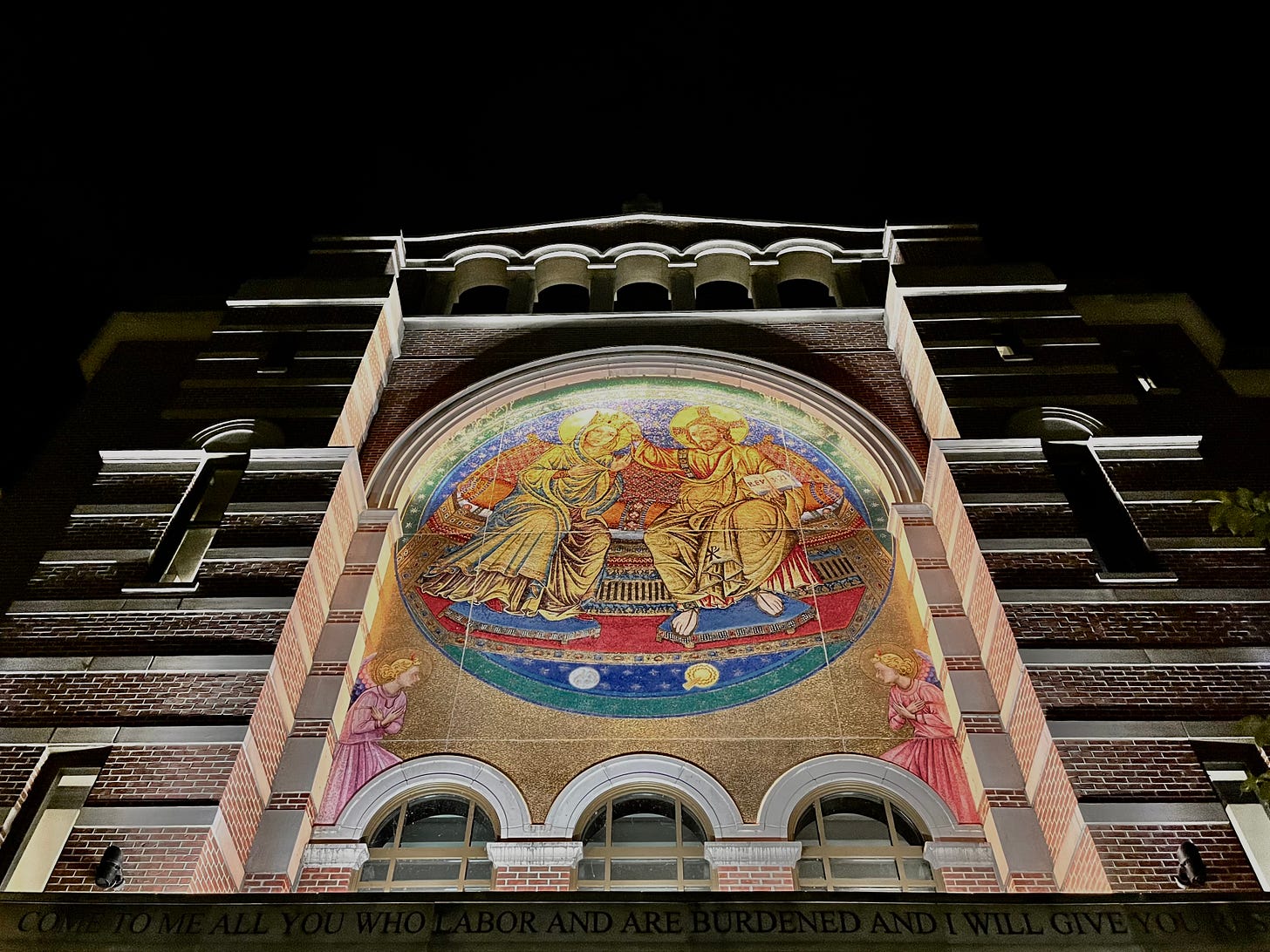UW-Madison Alumnus Returns to Campus as a Priest
Father David Carrano (UW '04) is the new pastor of St. Paul's Catholic Student Center
Father David Carrano became the pastor of Saint Paul’s Catholic Student Center this summer, returning to a church where he was once a regular parishioner. The UW-Madison alumnus graciously participated in a sit-down interview with The Madison Federalist to discuss his time on campus and hopes for the student center.
Carrano first came to campus as a student without much of a plan. A Madison native, he attended the university during a time of “transformation.” While St. Paul’s was still in its old building, he witnessed the formation and early life of many of the organizations at the church today, including the popularization of student-led Bible studies, an earlier form of Badger Catholic, and the unofficial precursor to Newman Dinners. On top of that, he said, “When I was a student, there was maybe a seven-to one women-to-men ratio at St. Paul’s.”
Although he describes himself as “fairly introverted”, Carrano led several Bible studies during his time on campus, joking that his “ministry as a student was more effective at bringing about conversions” than his time as a priest. He remembers meeting in the boiler room of the old student center building and often spending 15 minutes finding a place to meet, including occasionally under a stairwell.
Carrano sees his priesthood as “an extension of the incarnation of Christ,” and believes it is important to “be approachable.” He said, “I want to work on this paradox of the faith, the immanence of God, and the transcendence of God.” When asked if any aspects of being a priest are his favorite, he said he would not frame it using that language. However, speaking in a personal setting, such as during confessions or small groups, comes most naturally to him. He said, “I do enjoy preaching a lot,” noting that his homilies tend to be quite long.
Carrano also expressed that a challenge in coming back would be to address the number of new difficulties facing students today. He said, “I know there are significant differences, especially the attachment to technology.”
“Also, the kind of career and financial pressure that students feel was much less when I was a student. There seems to be a deep hesitancy and anxiety.” He continued, “People are just hesitant to have an opposing view to their friend group, and then there are a lot of fears of inadequacies. Fears, anxieties, and pressures about, like, ‘will I find my spouse’ or not, those kinds of things. Which I don’t remember being a part of my campus experience, or even my friends or people I knew.”
He added that, “A concern I have in the bottom of my heart” is “to help people find detachment from the things that are making their lives miserable, and a real sense of their God-given identity, value, and worth.” He said, “It’s really hard to lead someone to accept that truth in their life. Whether it’s a Catholic or another person that’s just in class with you, a lot of people are having similar struggles.”
Connecting these concerns to his hopes for his time at St. Paul’s, he said, “I am one of those people that doesn’t have the answer, but wants to help people find the path that I know, through life in Christ, and that’s the way to address those concerns.”
Much to his enjoyment, Carrano will have a lot of help in continuing to carry out the mission of St. Paul’s on campus. He said he feels like he “doesn’t need to fix anything” and his approach to running the student center will “focus on what’s making it work.” He said this will look like empowering the “large, zealous staff [who are] filled with desire to serve the Lord,” and guiding students through personal formation. Reflecting on his own experience leading a Bible study, he said, “Part of the beauty of ministry at this state of life is that people respond to others who are in a similar stage of development.”
At the same time, he hopes to address natural issues that arise when organizations get larger. He asked himself, “How do we keep the level of deep personal investment in people’s lives while the ministry has grown so much?” and “How do we make it invested deeply in people’s story like it was when I was here?”




